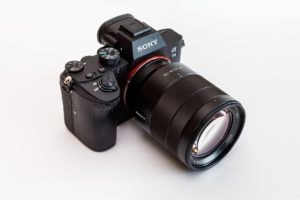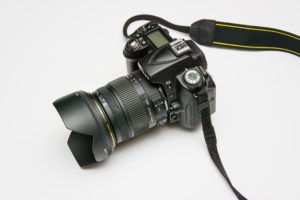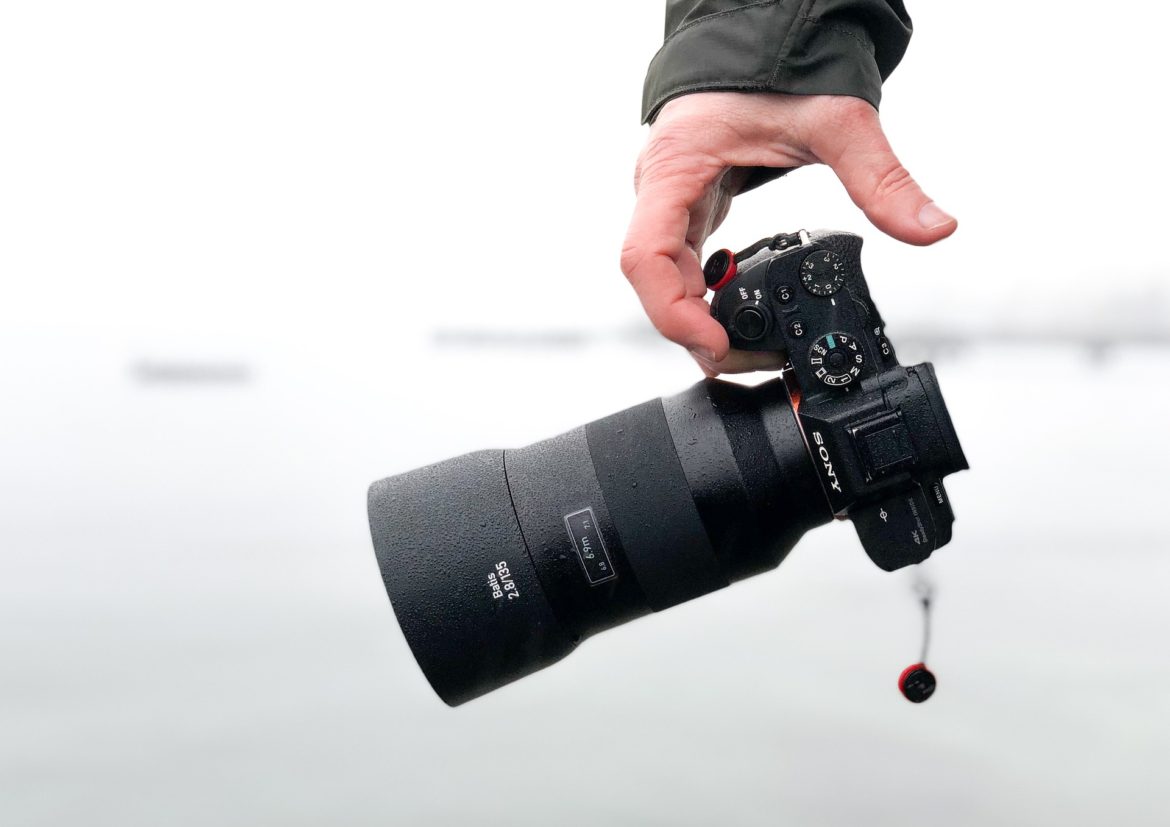This website may contain affiliate links, which means I may receive a commission if you click on a link and make a purchase. While clicking on these links will not cost you any extra money, they help support this website and allow me to continue providing valuable content. I only recommend products or services that I personally use or believe will add value to my readers. I appreciate your support!
As a photographer or videographer, choosing the right camera is crucial for capturing the best possible images and footage. Two popular types of cameras are mirrorless and DSLR cameras. Both offer their own unique features and advantages, but which one is right for you? In this article, we’ll compare mirrorless and DSLR cameras and help you decide which one is best suited for your needs. We included our top picks for beginners who want the best bang for the buck and get exceptional performance to help with your journey as a photographer/videographer.
Top Picks For Beginner Enthusiasts
$500 Canon EOS Rebel T7 DSLR Camera with 18-55mm Lens: Click Here
$800 Fujifilm X-T30 Mirrorless Camera: Click Here
$1100 Nikon Z 5 Mirrorless Camera: Click Here
$2000 Nikon Z 6II FX-Format Mirrorless Camera: Click Here
(Not beginner but more like professional cameras. These are more for people that want to start with high-end flagship cameras straightaway.)
$3000 Canon EOS R6 Full-Frame Mirrorless Camera: Click Here
$4000 Canon EOS R5 Full-Frame Mirrorless Camera: Click Here
$5000+ Sony a1 Full-Frame Mirrorless Camera: Click Here
What are Mirrorless Cameras?

Mirrorless cameras, as the name suggests, do not have a mirror in their body, unlike DSLR cameras. This means that light passes through the lens directly onto the camera’s image sensor, which then sends the image to the electronic viewfinder (EVF) or the rear LCD screen. The lack of a mirror and the pentaprism mechanism of a DSLR makes the mirrorless cameras more compact and lightweight, which makes them a great option for photographers who need to be mobile or want a more inconspicuous camera.
Pros of Mirrorless Cameras
- Compact and Lightweight: Mirrorless cameras are typically smaller and lighter than DSLR cameras, making them easier to carry and handle. They’re a great option for travel, street photography, or for photographers who need to be on the move.
- Electronic Viewfinder: Since mirrorless cameras do not have a mirror, they use an electronic viewfinder (EVF) to display the image in real time. The EVF offers a preview of the final image before it’s captured, which can be a great help in composing your shots. Additionally, the EVF can display important shooting information, like exposure settings, that can help you make quick adjustments.
- Silent Shooting: Mirrorless cameras often feature a silent shutter mode, which makes them ideal for capturing images in quiet environments, like during a wedding ceremony or in a theater.
- Video Capabilities: Many mirrorless cameras offer 4K video capabilities, making them a great option for videographers who want high-quality footage.
Cons of Mirrorless Cameras
- Battery Life: Mirrorless cameras rely on the electronic viewfinder and rear LCD screen, which can drain the battery faster than a DSLR camera. This means you’ll need to carry extra batteries or have a way to recharge them on the go.
- Autofocus Performance: While some mirrorless cameras have excellent autofocus performance, others may struggle with fast-moving subjects or in low light situations. It’s important to do your research and choose a mirrorless camera with good autofocus performance if this is important to you.
- Limited Lens Selection: While the lens selection for mirrorless cameras is growing, it’s still not as extensive as that of DSLR cameras. This may limit your options for specialty lenses or high-end lenses.
What are DSLR Cameras?

DSLR cameras have been around for decades and have long been the go-to choice for professional photographers. DSLR cameras feature a mirror that reflects light up to a pentaprism or pentamirror, which then sends the image to the optical viewfinder (OVF). This mechanism results in a larger camera body but also provides a bright and clear viewfinder, which many photographers prefer.
Pros of DSLR Cameras
- Optical Viewfinder: DSLR cameras use an optical viewfinder, which provides a clear and bright view of the scene you’re photographing. This can make it easier to see what you’re shooting and make quick adjustments to your settings.
- Battery Life: Since DSLR cameras do not rely on electronic viewfinders, they can have longer battery life than mirrorless cameras. This means you can shoot for longer periods of time without needing to recharge or swap out batteries.
- Autofocus Performance: Many DSLR cameras offer excellent autofocus performance, especially in fast-moving situations or low-light environments. This makes them a great option for sports photographers, wildlife photographers, or event photographers who need to capture quick moments.
- Wide Range of Lens Selection: DSLR cameras have been around for a long time, and as a result, they have a wide range of lenses available to choose from. This allows photographers to choose from specialty lenses or high-end lenses, giving them more creative control over their shots.
Cons of DSLR Cameras
- Size and Weight: DSLR cameras are generally larger and heavier than mirrorless cameras, which can make them less convenient to carry around. This can be a disadvantage for photographers who are traveling or who need to move quickly between shots.
- Noise: DSLR cameras have a louder shutter mechanism than mirrorless cameras, which can be distracting in quiet environments. This can be a disadvantage for wedding photographers or photojournalists who need to be discreet.
- Video Capabilities: While many DSLR cameras offer video capabilities, they may not be as advanced as those found in mirrorless cameras. This can be a disadvantage for videographers who need high-quality footage.
Image Quality
One common misconception about mirrorless cameras is that they always offer better image quality than DSLR cameras. While it’s true that some mirrorless cameras have larger sensors than DSLR cameras, which can result in better image quality, there are many other factors that contribute to image quality, including lens quality, image processing, and shooting technique. The image quality of a camera ultimately depends on the specific camera model and the skill of the photographer.
How to Choose Between Mirrorless and DSLR Cameras
Choosing between a mirrorless and DSLR camera ultimately depends on your specific needs and preferences. Here are some factors to consider when making your decision:
- Portability: If you need a camera that’s compact and easy to carry, a mirrorless camera may be the better option. However, if you don’t mind a larger and heavier camera, a DSLR camera may offer better ergonomics and handling.
- Lens Selection: If you need access to a wide range of lenses, a DSLR camera may be the better option. However, if you don’t need specialty lenses and prefer a simpler setup, a mirrorless camera may suffice.
- Autofocus Performance: If you need fast and accurate autofocus performance, it’s important to research the specific camera models you’re considering. Some mirrorless cameras offer excellent autofocus performance, while others may struggle in certain situations.
- Battery Life: If you need a camera that can shoot for long periods of time without needing to recharge or swap out batteries, a DSLR camera may be the better option.
- Video Capabilities: If you need advanced video capabilities, like 4K or high-speed frame rates, a mirrorless camera may be the better option. However, if you don’t need advanced video capabilities, a DSLR camera may suffice.
Conclusion
Mirrorless and DSLR cameras both have their own unique features and advantages. While some photographers may prefer the compactness and convenience of a mirrorless camera, others may prefer the handling and lens selection of a DSLR camera. Ultimately, the choice between mirrorless and DSLR cameras depends on your specific needs and preferences. By considering factors like portability, lens selection, autofocus performance, battery life, and video capabilities, you can choose the camera that’s right for you. Regardless of which camera you choose, it’s important to remember that the image quality ultimately depends on the skill of the photographer.
